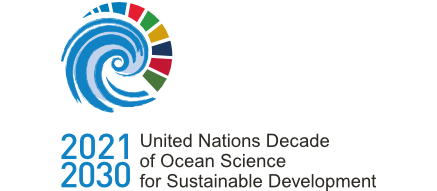The global ocean community is invited to plan for the next ten years in ocean science and technology to deliver, together, the ocean we need for the future we want!
- United Nations Decade of Ocean Science for Sustainable Development
Endorsed UN Ocean Decade Activity
The MATE ROV Competition has accepted this invitation and is challenging its global community of learners to come together to innovate, create, and develop solutions to the problems that impact us all.
The United Nations proclaimed a Decade of Ocean Science for Sustainable Development (2021-2030) to support efforts to reverse the cycle of decline in ocean health and to gather the global community behind a common goal: creating improved conditions for sustainable use and development of our world ocean.
The ocean is the largest component of our planet’s ecosystem; it stabilizes climate and supports life on Earth and human well-being. However, the First World Ocean Assessment report released in 2016 found that much of the ocean is now seriously degraded, with changes and losses in the structure, function, and benefits from ocean systems.
Understanding how the ocean responds to pressures and taking action to improve management practices is critical for sustainable use and development of this precious resource. Ocean observations and research are critical to predicting the consequences of change, designing ways to mitigate these consequences, and guiding communities to embrace and adapt these practices for the good of us all.
It’s no secret that one of the biggest threats the world ocean faces is the impact of climate change. Marine habitats and wildlife are already suffering the consequences of rising sea temperatures and acidification, as are the coastal communities that depend on them. The impact of multiple pressures on the ocean is projected to increase as the human population grows towards the expected 9 billion by 2050. Without aggressive action to reduce carbon emissions over the next decade, the damage to our oceans and our planet has the potential to be horrific.
Marine renewable energies (MREs), such as offshore wind farms, tidal turbines, wave energy converters, and floating solar panels, play a key role in mitigating the effects of climate change and paving the pathway to a sustainable future. MREs provide a significant contribution to the production of low-carbon renewable energy around the world and are an important ally in the fight against climate change. Another ally is Blue Carbon, which is the carbon stored in coastal and marine ecosystems, such as mangroves and seagrasses, the latter of which can absorb and store carbon 35 times more efficiently than rainforests. Aquaculture, the breeding, rearing, and harvesting of fish, shellfish, algae, and other organisms in all types of water environments, is also an ally in the quest for a sustainable future on our ocean planet. It is the fastest growing food supply sector in the world and is and will continue to be needed to feed an ever-growing human population.
This MATE ROV Competition season the “client” is once again us – our global community – and each task area included within the request for proposals (RFP) aligns with one or more the 17 UN Sustainable Development Goals that, while not specific to the Decade of the Ocean, offer a blueprint to achieve a better and more sustainable future for all. Each task also embraces ESG – the environmental, social, and governance factors that more and more companies and organizations are taking into consideration when making business and management decisions. Joined by partners Ocean Infinity, Reach The World, and the National Science Foundation-funded GO-BGC Project, among others, the MATE ROV Competition is challenging its community to design and build a remotely operated vehicle and the necessary sensors and tooling to support work to combat climate change, provide clean energy, feed our growing global population, monitor ocean health, preserve our
maritime history, and “deliver, together, the ocean we need for the future we want!”
And this is where your mission begins. Task 1: Marine Renewable Energy
UN Sustainable Development Goals:
#7 Affordable and Clean Energy
#12 Responsible Consumption and production
Task 2: Offshore Aquaculture and Blue Carbon
UN Sustainable Development Goals:
#2 Zero Hunger
#13 Climate Action
#14 Life Below Water
Task 3: Antarctica Then and Now – Endurance22 and MATE Floats!
UN Sustainable Development Goal:
• #13 Climate Action


